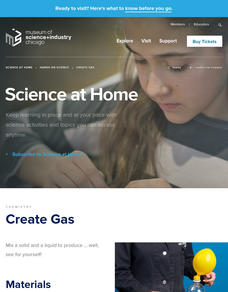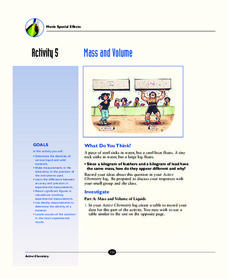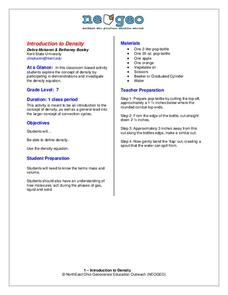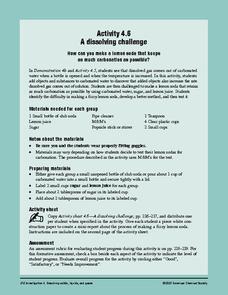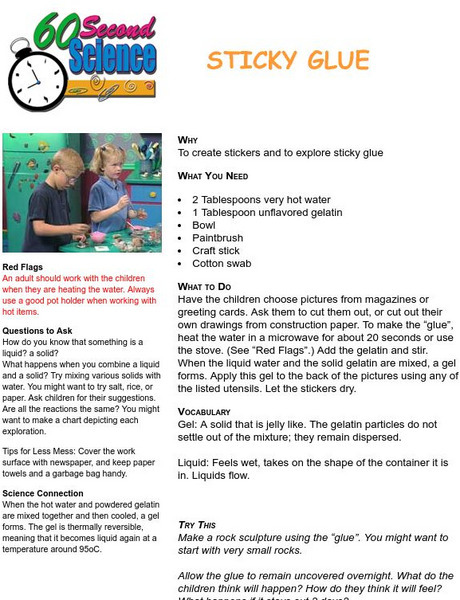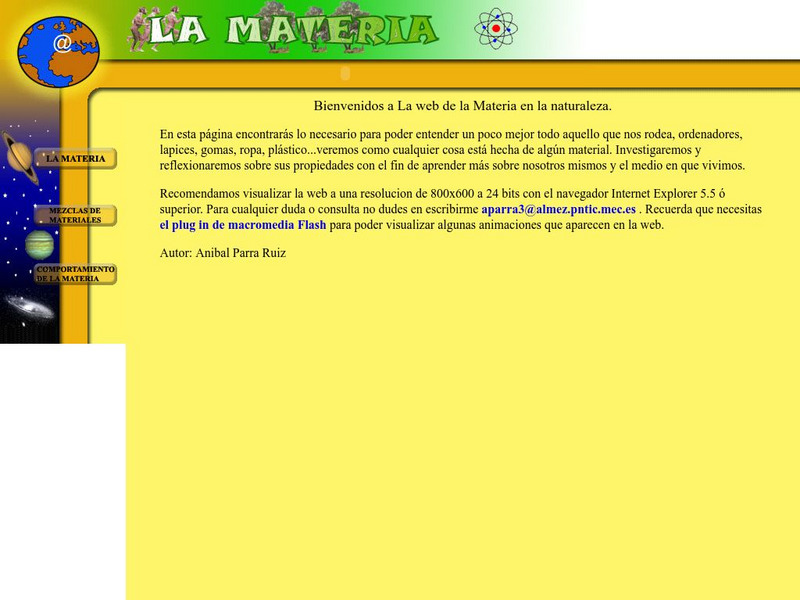University of Waikato
Looking at Water - Solid, Liquid, or Gas
Here's a tip: only one substance is commonly found as a solid, liquid, and gas. Learners use that knowledge as they investigate the properties of water in each state. They interact with water in each of its three phases and record what...
Museum of Science
Create Gas
Let's have a gas. Individuals mix baking soda and vinegar in a bottle. Learners view the interaction between the solid and the liquid and notice that a gas is formed. Scholars notice the gas inflates a balloon stretched across the mouth...
Resources for Educators
Math & Science Connection
Whether you're using a collection of Dr. Seuss books to teach basic math skills like counting, adding, and subtracting, or exploring the different states of matter by melting a crayon with a hairdryer, a series...
University of Waikato
Solid to Liquid to Gas
Help classes understand heat as a form of energy. A hands-on activity has learners investigate how heat, or the lack of heat, affects the physical state of water. They then connect their discoveries to the water cycle.
Center for Learning in Action
Gases
Explore the properties of gases through one activity and two investigations in which super scientists observe the changes gas makes when encountering different conditions.
It's About Time
Mass and Volume
Don't be so dense that light bends around you; study the relationship between mass and volume instead. Young chemists measure the density of a variety of liquids and solids. A reading passage and analysis questions introduce pupils to...
Exploratorium
Bubble Suspension
Create a cushion of carbon dioxide gas to float some soap bubbles on. Many concepts can be demonstrated through this activity:
Carbon dioxide gas is more dense than air
Bubbles are semipermeable, allowing only carbon dioxide to diffuse...
NorthEast Ohio Geoscience Education Outreach
Introduction to Density
Seventh grade scientists weigh in on the concept of density. In a nutshell, they participate in the following activities:
Measurement of the mass and volume of fruit in order to compare densities
Measurement of the mass of oil and water...
K-State Research and Extensions
The Crusty Earth
Geology rocks — literally! A geology chapter offers eleven activities at four different levels. Scholars enjoy completing hands-on experiments before applying critical thinking skills following a share, process, generalize, apply,...
American Chemical Society
A Dissolving Challenge
After collecting carbon dioxide bubbles from a cup of club soda, learners attempt to make their own lemon soda while preventing the loss of carbonation. They do so by creating a syrup before mixing the substances into the club soda....
K-State Research and Extensions
Water
How are maps like fish? They both have scales. The chapter includes six different activities at three different levels. Scholars complete activities using natural resources, learn how to read a map, see how to make a compass rosette,...
Curated OER
Element Research Project
Students research elements on interactive Internet periodic tables, take notes using Inspiration software, and write descriptive paragraphs with graphics. They create presentations.
TeachEngineering
Teach Engineering: Solid, Liquid or Gas?
Students are given a variety of materials and asked to identify if each material as a solid, liquid or gas. They use their five senses - sight, sound, smell, texture and taste - to identify the other characteristics of each item.
Center of Science and Industry
Cosi Columbus: Can You Stand the Pressure
Science experiment that demonstrates the four states or phases of matter: solid, liquid, gas, and plasma. Includes full list of materials, procedures, and scientific explanation of how you change water from a liquid state to a gaseous...
Ministerio de Educación (Spain)
Ministerio De Educacion: La Materia
In this site you can learn and experiment with matter properties and change in behavior. Every theoretical explanation is accompanied by an animation. You will be able to aply the theory to real experiments.

